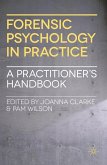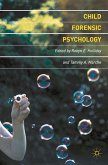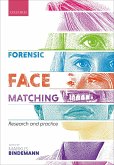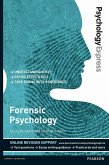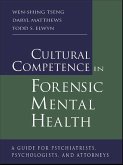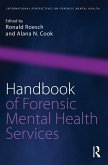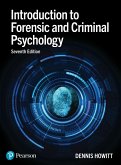This fascinating and research-led textbook gives students the facts and the tools they need to engage critically with the psychological dimension of the criminal justice system. Accessibly written and packed with the latest psychological research, Forensic Psychology: Fact and Fiction is an engaging and wide-ranging exploration of both foundational and contemporary issues. The book prepares students to weigh up evidence and arguments, and reach their own conclusions about the issues and questions that have led them to study forensic psychology.
Forensic Psychology: Fact and Fiction gives students all they need to get to grips with debates about the link between mental fitness and criminal responsibility, the purposes and effectiveness of punishment, and the use of police force, and others. It places psychology at its heart, combining research with legal perspectives to give the full picture. Drawing on global research and examples, students are given insights into what differs and what remains the same across jurisdictions and borders. Real-life case studies illustrate forensic concepts, allowing students to see how psychology is applied to criminal behaviour and the response of society to it.
This comprehensive introduction is ideal for undergraduate students taking a course in forensic psychology. Balancing clarity and rigor, the book takes the student on a journey from the fundamental concepts through to the application of psychology to forensic techniques.
Accompanying online resources for this title can be found at bloomsburyonlineresources.com/davis-forensic-psychology. These resources are designed to support teaching and learning when using this textbook and are available at no extra cost.
Forensic Psychology: Fact and Fiction gives students all they need to get to grips with debates about the link between mental fitness and criminal responsibility, the purposes and effectiveness of punishment, and the use of police force, and others. It places psychology at its heart, combining research with legal perspectives to give the full picture. Drawing on global research and examples, students are given insights into what differs and what remains the same across jurisdictions and borders. Real-life case studies illustrate forensic concepts, allowing students to see how psychology is applied to criminal behaviour and the response of society to it.
This comprehensive introduction is ideal for undergraduate students taking a course in forensic psychology. Balancing clarity and rigor, the book takes the student on a journey from the fundamental concepts through to the application of psychology to forensic techniques.
Accompanying online resources for this title can be found at bloomsburyonlineresources.com/davis-forensic-psychology. These resources are designed to support teaching and learning when using this textbook and are available at no extra cost.



